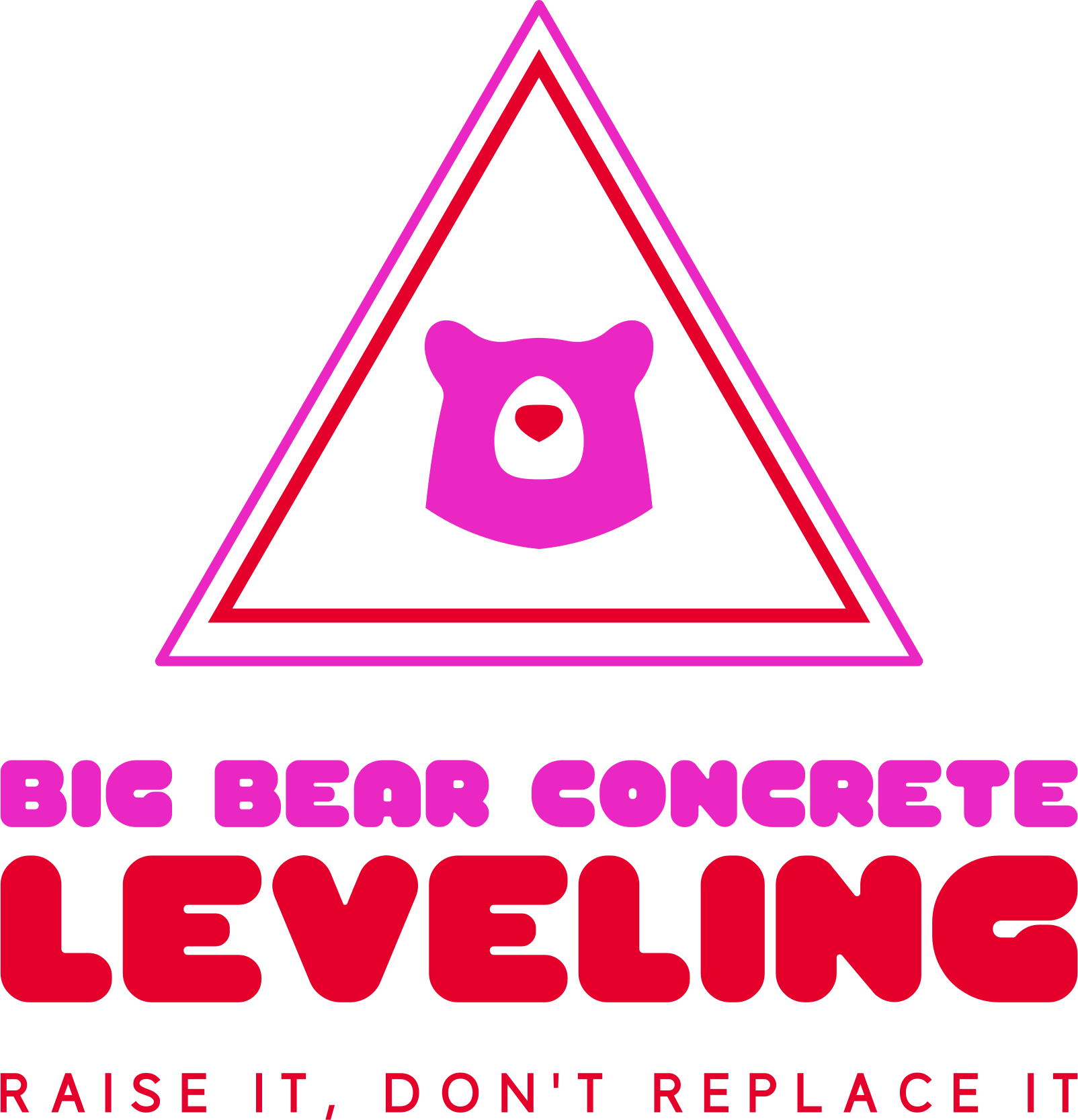Big Bear Concrete Leveling
Frequently Asked Questions
Learn More About Big Bear Concrete Leveling
Have a concrete leveling or soil stabilization related question? We have the answer. Check out these FAQs and give us a call today for more information!
-
What kind of foam do you use?
We proudly use HMI Polyurethane Foam Products for all of our concrete leveling in Pittsburgh, PA. Our foams are environmentally friendly, consisting of 39-49% renewable and recycled materials.
-
What is the difference between mudjacking and polyjacking?
Mudjacking uses a limestone slurry or mudmix slurry to fill the void below your sinking concrete. Polyjacking uses eco-friendly polyurethane foam to stop further erosion and level concrete back into place.
If you're looking for experienced concrete leveling in Pittsburgh, PA, call Big Bear Concrete Repair today!
-
Is concrete leveling expensive?
Concrete leveling typically provides a savings of 50-70% over replacement. For the concrete leveling Pittsburgh, PA residents trust, call Big Bear Concrete Repair for a quote today!
-
How long does concrete leveling take?
Most projects take a few hours and can be completed on the same day. Leveled concrete can be used immediately after the repair. For the concrete leveling Pittsburgh, PA residents rely on, call us today!
-
What is a void?
A void is an air or water pocket below the concrete. Typically, clay soil is more prone to voids. Water drainage issues, poor soil preparation, burrowing rodents, or normal settling of soils can also create voids.
For reliable void and sinkhole repair in Pittsburgh, PA, call us today!
-
Do I need to be home for the estimate?
You do not need to physically be home for our estimates on concrete leveling in Pittsburgh, PA. We can email your estimate to you after it's been completed, however, we do prefer that you are home so that we can readily answer any questions you have.
Call to set up your estimate today!
-
How quickly can I use my concrete after repair?
In minutes! For the concrete leveling Pittsburgh, PA residents trust, call us today!
-
How big are injection drill hole sizes?
We proudly offer the smallest hole sizes in the business! Ranging from three-eights to five-eights, our team is able to perform concrete leveling in Pittsburgh, PA with hole sizes smaller than a dime!
-
Will mudjacking or polyurethane last longer?
Polyurethane is a long-lasting, eco-friendly alternative to mudjacking and will not wash out like most mudjacking slurries after 2-5 years. To schedule your concrete leveling in Pittsburgh, PA, call Big Bear Concrete Repair today!
-
How much does leveling cost compared to existing concrete replacement?
Concrete leveling is typically half the cost of replacement and is a fast and affordable alternative! For the concrete leveling Pittsburgh, PA residents trust, call us today!
-
What are the benefits of polyurethane concrete leveling vs. mudjacking or replacement?
- Polyurethane is lighter weight but doesn't lose strength
- Leveling is HALF the cost of replacement
- No demolition and disposal of old concrete
- Poly is No Mess
- Can use immediately after repair
- Will not wash out
- Leveling is a "Green" Process.
- Concrete Leveling reduces job time.
- Provides soil stabilization
- Injection holes smaller than a dime! 5/8 or 3/8
-
Why do soils fail?
- Erosion - Seawalls are commonly exposed to currents and wave action that erode soils
- Improper Drainage Design - Supporting soils and fill can erode leaving slabs and structures with out necessary support when drainage is improperly designed
- Excessive Loads - Soil failures and settlement are common when slabs and roadways are exposed to loads heavier than the engineered load bearing capacity of the sub grade or structure
- Vibrations - Settlement and voids can be created when vibrations from passing traffic or equipment operation occur
- Variatble Water Levels - High water levels can cause erosion while low water levels can deterioratae construction materials causing failures
- Water Content - The water content of soil will impact the behavior of soils seasonally with frost & heave cycles or drough and wet conditions
- Over Saturated Soils - Slils can compact and allow for settlement
- Seasonal Impact - Frost heave or extreme weather conditions
- Sink Holes
- Deep foamjection is the best solution for sink holes that occur close to the surface.
- Weak Native Soils - Some soils can retain moisture and behave like clay or sand resulting in settlement
- Construction Design Failure - Drainage direction
- Improperly Compacted/Failing Fill Material - Common with new construciton if low quality fill is used
- Earthquake - Liquefaction takes place when loosely packed, water-logged sediments near teh ground surface temporarily lose strength and act as a fulid in response to strong ground shaking.
-
What is a dynamic cone penetrometer?
The Dynamic Cone Penetrometer (DCP) Test is used to determine underlying soil strength by measuring the device’s penetration into the soil after each hammer blow.
-
What is DCP Testing?
Dynamic Cone Penetration (DCP) testing is used to measure the soil’s strength and the thickness and location of subsurface soil layers.
-
What is DCP in the Pittsburgh Construction Industry?
Dynamic Cone Penetrometer, or DCP, is used for measuring the strength of soils on site. It also helps with monitoring the condition of granular layers and subgrade soils in pavement sections over time.
-
Why do a DCP Test?
If the soil beneath a roadway/concrete is not compacted sufficiently, then over time the cycling loads of passing traffic will compact the soil further, leading to surface failures such as large cracks, potholes, and displaced pavement.
-
What is polyurethane foundation leveling?
Polyurethane foundation leveling is a technique used to lift and level uneven or sunken concrete foundations. It involves injecting polyurethane foam beneath the foundation, expanding to lift and stabilize the structure.
-
How does polyurethane foundation leveling work?
Small holes are drilled into the affected area of the foundation. Polyurethane foam is then injected into these holes, expanding to fill voids and raise the foundation to its proper level. The foam hardens quickly, providing structural support.
-
What are the benefits of polyurethane foundation leveling?
olyurethane foundation leveling offers quick and non-intrusive solutions. It is cost-effective, durable, and provides long-lasting stabilization. The lightweight nature of the foam minimizes stress on the underlying soil.
-
How do I know if my foundation needs leveling?
Signs of foundation issues include cracks in walls, uneven floors, doors or windows that don't close properly, and visible sinking or settling. A professional inspection from BIg Bear Concrete Leveling can determine if polyurethane leveling is the right solution.
-
Is polyurethane foundation leveling suitable for all types of foundations?
Polyurethane foundation leveling is versatile and can be used on various foundation types, including residential, commercial, and industrial. It is effective for both slab and raised foundations.
-
How long does the polyurethane foundation leveling process take?
The process is relatively quick and minimally invasive with no demolition or excavation required for repair. Most projects can be completed in a day or less, and the injected foam cures rapidly, allowing for immediate use of the treated area.
-
Is polyurethane foundation leveling a permanent solution?
Yes, polyurethane foundation leveling provides a long-term solution. The foam is resistant to moisture and soil chemicals, ensuring stability over time. Properly leveled foundations can last for decades.
-
Can polyurethane foundation leveling be done in cold or wet weather?
Polyurethane foam is moderately affected by weather conditions during the installation process. It can be applied in various weather conditions, making it a versatile solution. Foam reacts slower in colder temperatures.
-
Can polyurethane foundation leveling prevent future settling?
Yes, Deep Foam Injection a varying depths will allow for stabilization of weak soils to prevent further erosion.
-
How much does polyurethane foundation leveling cost?
The cost varies based on factors such as the size of the project, the severity of foundation issues. Polyurethane foundation leveling is less expensive in peiring and other traditional forms of foundation repair.
-
What is sinkhole repair with polyurethane foam?
Sinkhole repair with polyurethane foam is a process used to stabilize and fill sinkholes. Polyurethane foam is injected into the sinkhole, expanding to fill voids and provide structural support.
-
How does polyurethane foam repair sinkholes?
Small holes are drilled around the sinkhole's perimeter, and polyurethane foam is injected into these holes. The foam expands, filling gaps and stabilizing the surrounding soil, preventing further sinking.
-
What are the advantages of using polyurethane foam for sinkhole repair?
Polyurethane foam is lightweight, quick-curing, and resistant to moisture. It provides a cost-effective and durable solution, minimizing disruption to the surrounding area.
-
How do I know if my property has a sinkhole?
Signs of a sinkhole include depressions or holes in the ground, cracks in the foundation or walls, and tilted or sinking structures. If you notice these signs, call Big Bear to schedule an evaluation.
-
Can polyurethane foam repair all types of sinkholes?
Yes. We have both open and closed cell polyurethane foams to repair all varieties of sinkholes.
-
How long does the polyurethane foam sinkhole repair process take?
The process is relatively quick, often completed within a day. The injected foam cures rapidly, allowing for immediate stability and use of the treated area.
-
Can polyurethane foam prevent future sinkholes?
While polyurethane foam provides stabilization, it cannot aways guarantee the prevention of future sinkholes. Regular monitoring, maintenance, and addressing underlying causes are essential for long-term stability.
-
Will the polyurethane foam cause damage to existing structures?
No, polyurethane foam is lightweight and exerts minimal pressure on structures. The injection process is carefully controlled to prevent damage to surrounding buildings or infrastructure.
-
Can polyurethane foam repair sinkholes in any location?
Polyurethane foam is versatile and can be used in various locations, including residential, commercial, and industrial areas.
-
Is polyurethane foam sinkhole repair cost-effective?
Polyurethane foam sinkhole repair is often considered cost-effective compared to traditional methods. The overall cost depends on factors such as the size of the sinkhole and the extent of the repairs needed.
-
What are the common applications of void filling with polyurethane foam?
Void filling is commonly used for stabilizing soil, lifting concrete slabs, and repairing foundations affected by voids or settlement.
-
How does polyurethane foam compare to traditional methods of void filling?
Polyurethane foam is often preferred for its quick curing time, ability to fill tight spaces, and lightweight properties. It is considered a cost-effective and efficient alternative to some traditional methods.
-
How long does it take for polyurethane foam to cure after injection?
The curing time varies based on the specific formulation and environmental conditions. Generally, polyurethane foam can cure within minutes.
-
Can polyurethane foam be injected in cold or wet conditions?
Some polyurethane foams are designed to cure in various environmental conditions, including cold and wet weather. We have a cool foam that is a flowable fill and hydrophobic polyurethane for all types of voids.




Share On: